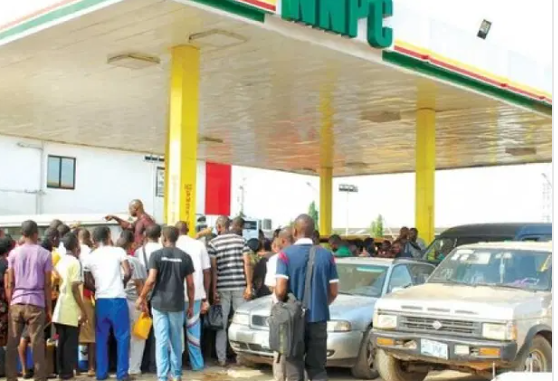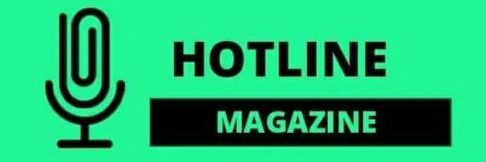
The price of Premium Motor Spirit, or PMS, popularly referred to as gasoline, was raised from N998 per litre to N1,025 per litre in Lagos and the surrounding areas yesterday by the Nigerian National Petroleum Company Limited, or NNPCL.
In a same vein, the product’s price in Abuja increased from N1,030 to N1,060, marking the third price hike in two months.
The latest increase came as the price of Nigeria’s Bonny Light crude dropped to $72 per barrel, from $75 per barrel, indicating a shortfall of 8.2 per cent against the $77.96 per barrel reference price of the 2024 budget.

In Lagos, filling stations immediately adjusted their prices to reflect the new rate, while motorists were seen rushing to some outlets yet to adjust prices to buy the product
NNPCL had earlier this month, hiked pump prices from N897 per litre to N1,030 per litre following the deregulation of petrol pricing by the Federal Government.
The majority of the large marketers that had opened during the day closed their gates as they started to reset their meters, according to checks conducted Tuesday night in the central region of Abuja.
The independent marketers Ardova Plc station, which is across from the NNPC Retail mega station, meanwhile, kept selling to drivers at the previous price of N1,125 per liter.
Olufemi Soneye, the NNPCL spokesman, was unavailable for comment last night; nevertheless, Vanguard’s investigation revealed that the pricing adjustment was driven by market forces after the downstream sector was deregulated.
“This is the third adjustment to be made in September and October 2024, based on deregulation,” stated an industry source who asked to remain unnamed.
The policy makes it possible to modify prices in response to supply and demand. Another explanation could be the naira’s weakness, which is currently at N1,664/$.
Dr. Muda Yusuf, the CEO of the Centre for the Promotion of Private Enterprises, or CPPE, responded to the news yesterday by stating that deregulation might have influenced the choice. They ought to take other factors into account as well, particularly in light of the pain that Nigerians are currently experiencing.
In order to lessen the suffering of its population, the government would have to embrace social approaches.
“It is true that Nigerians are going through a very trying time, and they require measures to ease their suffering.”
But according to a prominent oil marketer who asked not to be named, “at the moment, the price of gasoline has been deregulated.” It may increase now, but given the sharp decline in crude oil prices on the international market, it should also fall in the upcoming weeks.
“Deregulation has been welcomed by the NNPCL and other downstream value chain participants, and it is anticipated that low crude oil costs would be reflected in gasoline prices.
“The government will then be urged to lower their operating expenses and potentially provide incentives to SMEs, which are primarily impacted by the increase.”
Revolt against petrol pump increases, CSO urges Nigerians
Reacting to the latest hike in the petrol pump price by the Nigerian National Petroleum Company, NNPC, a member of the Joint Action Front, JAF, the Movement for a Socialist Alternative, MSA, called on Nigerians, especially workers, to revolt against the endless increase in the pump price of petrol the federal government.
JAF is the umbrella body for pro-workers civil society organization
In a statement released by its General Secretary, Dagga Tolar, MSA stated: “The Nigerian National Petroleum Company, NNPC, Limited, has once again hiked the price of gasoline, this time surpassing the N1,025 mark per liter, in a concerning and unrelenting trend.
Just two weeks have passed since Nigerians voiced their displeasure over the startling 430% spike in gas prices since President Tinubu took office. In addition to increasing the financial burden on Nigerian households, the recent changes demonstrated the government’s indifference to the difficult circumstances that the working class faces.
Just two weeks have passed since Nigerians voiced their displeasure over the startling 430% spike in gas prices since President Tinubu took office. In addition to increasing the financial burden on Nigerian households, the recent changes demonstrated the government’s indifference to the difficult circumstances that the working class faces.
“This relentless rise in gas prices is strongly condemned by the Movement for a Socialist Alternative, or MSA, as it represents yet another violent assault on the government’s neoliberal program.
“”The majority of Nigerians are now living in intolerable poverty as a result of this pattern of price increases, while corporate interests continue to make money.
As workers are pushed into greater economic hardship, the Nigerian Labour Congress (NLC) and the Trade Union Congress (TUC) must stand firm and stop keeping quiet. To shield the Nigerian people from these predatory policies, they must act swiftly and together.
“We urge the working class in Nigeria to unite and resist this unchecked assault on their means of subsistence. It is more important than ever to present a unified front in opposition to these policies that continuously prioritize business over people.
“The MSA supports all Nigerian citizens and workers who want to a fair, accessible, and just economy. We must band together to demand that this cycle of price increases stop and to advocate for measures that actually put the welfare of the populace first.
Independent marketers sell higher
Hotline magazine learned yesterday that independent marketers, who have usually followed NNPCL’s lead, are also getting ready to jack up prices.
According to findings from yesterday, some of them were already charging N1,150 to N1,200 per liter for the goods.
Tinubu urges stakeholders in oil industry to stop reliance on importation
To end the ongoing dependency on imports, President Bola Tinubu called on those involved in the oil and gas sector to examine their own needs and think about providing enough gasoline and petroleum products for domestic use yesterday in Abuja.
According to him, this will make it possible to direct foreign exchange toward the growth of the real sector.
Along with praising the implementation committee on naira-based sales of crude oil and processed products, the president requested its members to address any potential teething issues.
The President stated during a review meeting at the State House that the naira was chosen in order to eliminate the exchange rate barrier.
Whatever remedy we propose for the sale of crude oil and processed goods in naira shouldn’t return us to what happened forty years ago.
The president said, “The problem is that the government will not have to go back to the old ways of doing things.” The oil industry may see changes in revenue and costs.
According to him, the NNPCL and the Dangote Refinery, among other oil industry participants, ought to endeavor to enhance the Nigerian economy and people’s standard of living.
In order to settle the naira price dispute for crude and refined goods, the president suggested that stakeholders use Afreximbank as a settlement bank.
Afreximbank is already on board as the financial adviser.

“What we do must be decided by the market. Independent marketers and the government side can collaborate on the spreadsheet after you let the market decide the profit and loss. I want the problems fixed so that no more time is wasted.
“We can achieve energy security, and Alhaji Aliko Dangote’s motivation will not be overcome.” In the medium and long term, it will be more predictable,” the president stated.
Wale Edun, the Minister of Finance and Coordinating Minister of the Economy, stated in his speech that the government would not be involved in setting the exchange rate for the oil industry and that the administration’s groundbreaking actions to sell crude in naira would not be undone.
After providing 400 million liters of fuel to the economy, the refinery has more than 500 million liters of fuel in reserve, according to Alhaji Aliko Dangote, President/CEO of the Dangote Group, who addressed the President.
He claimed that in order to supply an anticipated 32 million liters of local gasoline, the refinery can work with other refineries run by NNPC Ltd.
Zach Adedeji, the chairman of the technical committee and chairman of the Federal Inland Revenue Service, stated during the meeting that if the nation has the capacity to produce enough to meet its own needs, it should stop importing refined products.
“The President’s goal is to make Nigeria a global center for the production of high-quality goods,” he emphasized.
Afrexim Bank President and Board Chairman Prof. Benedict Oramah, Sen. Abubakar Atiku Bagudu, Minister of Budget & National Planning, and Mele Kyari, Group Managing Director of NNPC Limited, were among the other participants at the meeting.
In addition to Engineer Gbenga Komolafe, head of the Upstream Regulator, and Farouk Ahmed, head of the Midstream and Downstream Regulator, NMDPRA, the meeting was attended by the CEOs of NIMASA and the Nigerian Ports Authority, NPA, as well as the president’s Special Adviser on Energy, Olu Verheijen.

Be the first to comment